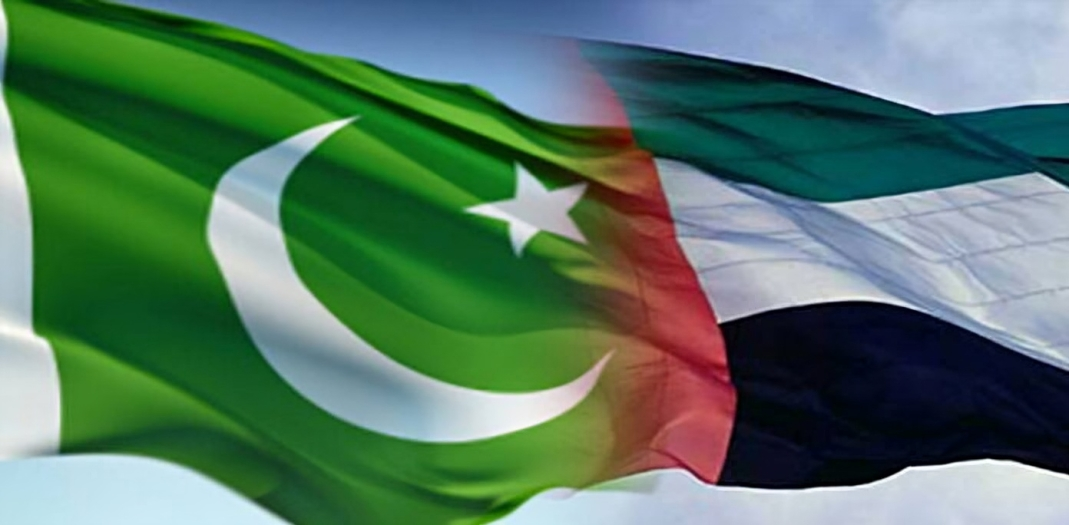Pakistan UAE Trade Crosses $10.1 Billion Mark, Strengthening Economic Ties

Pakistan UAE trade has reached a significant milestone, crossing the $10.1 billion mark, according to recent data released by trade authorities. This surge in bilateral commerce between Pakistan and the United Arab Emirates reflects growing economic cooperation, deepening investment ties, and a mutual commitment to expanding regional trade opportunities.
The landmark figure not only reaffirms the UAE’s position as one of Pakistan’s top trading partners but also demonstrates how diplomatic efforts and business collaborations are helping both nations navigate global economic shifts.
Overview of Pakistan UAE Trade Growth
The $10.1 billion figure represents total trade volume between the two countries, including exports, imports, and services. This growth is especially notable given the global economic volatility in recent years due to inflation, oil price fluctuations, and supply chain disruptions.
Over the past five years, Pakistan UAE trade has steadily increased, driven by the UAE’s demand for food products, textiles, and IT services from Pakistan, and Pakistan’s import of oil, machinery, and luxury goods from the UAE.
According to Pakistan’s Ministry of Commerce, bilateral trade was just under $8 billion in FY2022-23. The new figure reflects a 26% year-on-year growth, making it one of the fastest growing trade partnerships in the region.
Breakdown of Trade Components
Let’s explore the major categories contributing to this sharp rise in Pakistan UAE trade.
1. Pakistan’s Exports to the UAE
Exports from Pakistan to the UAE include:
-
Textiles & Garments: Pakistan exported over $2.1 billion worth of textiles, including denim, cotton garments, and home textiles.
-
Food & Agro Products: Over $1.4 billion in exports included rice, fruits (especially mangoes and oranges), vegetables, meat, and spices.
-
IT & Freelance Services: A rapidly growing segment, Pakistan’s digital services sector contributed over $500 million in freelance and tech exports to the UAE.
2. UAE’s Exports to Pakistan
On the other hand, Pakistan imported the following from the UAE:
-
Petroleum Products: Crude oil and refined petroleum worth more than $4.5 billion formed the largest import group.
-
Gold & Precious Metals: Jewelry and raw gold shipments stood at around $800 million.
-
Machinery & Electronics: Industrial and consumer machinery accounted for nearly $900 million of imports.
Trade Agreements and Diplomatic Initiatives
The recent upswing in Pakistan UAE trade can be partially attributed to new trade facilitation agreements and stronger diplomatic engagement between the two countries. High level meetings held in Abu Dhabi and Islamabad during 2024 and early 2025 focused on improving customs cooperation, reducing trade barriers, and enhancing logistics.
In January 2025, Pakistan and the UAE signed a Comprehensive Economic Partnership Agreement (CEPA), which provides:
-
Reduced tariffs on priority goods
-
Simplified customs procedures
-
Investment protections for UAE investors in Pakistan
-
Collaboration in logistics and fintech
The CEPA has already begun showing results, particularly in the agricultural and IT export sectors.
UAE: A Key Trade and Investment Partner
The UAE continues to be one of Pakistan’s most important trade allies. With over 1.6 million Pakistanis living in the UAE, strong people-to-people connections support ongoing commercial exchange.
Additionally, the UAE has invested billions in Pakistan’s infrastructure, energy, and telecommunications sectors. Emirates National Oil Company (ENOC), Etisalat, DP World, and others have long-standing operations in Pakistan.
In 2025, the UAE also committed a $1 billion investment in Pakistan’s digital payment ecosystem and smart logistics to help streamline cross-border trade and promote fintech entrepreneurship.
Pakistan’s Strategic Vision: Expanding Middle East Trade
Pakistan’s current trade policy, particularly under its Vision 2025 agenda, emphasizes regional connectivity and strategic partnerships in the Middle East. The Pakistan UAE trade success aligns perfectly with that vision.
Government officials are working on:
-
Launching Pakistan UAE Business Councils to facilitate B2B engagement
-
Opening trade exhibitions in Dubai and Abu Dhabi to showcase Pakistani brands
-
Streamlining visa and travel processes for business delegations and exporters
The UAE also acts as a gateway to Gulf Cooperation Council (GCC) markets for Pakistani products, helping local exporters access Saudi Arabia, Qatar, and Bahrain through Dubai’s re export hubs.
Challenges in Bilateral Trade
Despite the surge, Pakistan-UAE trade still faces several challenges:
-
Logistics bottlenecks, especially in perishable goods
-
Currency fluctuation risks
-
Export financing constraints for small businesses
-
Inconsistent product standards
However, both governments have shown willingness to resolve these issues through public-private partnerships, tech-based trade solutions, and simplified port clearances.
Opportunities for Growth in 2025 and Beyond
The path forward looks promising for Pakistan UAE trade, particularly in these key sectors:
1. Halal Food Export
Pakistan can become a major halal food supplier to UAE supermarkets, especially as demand for clean, certified products grows.
2. Digital & Freelance Economy
With the UAE investing in tech and Pakistan’s freelance workforce booming, collaborations in AI, blockchain, and app development could add another $500 million to bilateral trade.
3. Green Energy
UAE’s clean energy firms are exploring solar and wind projects in southern Pakistan. Joint ventures in energy infrastructure are expected to expand in the next 2 to 3 years.
4. Ecommerce Logistics
Pakistan-based sellers are increasingly using UAE fulfillment centers to ship globally. Platforms like Amazon UAE, Noon, and Daraz are opening new doors for exporters.
Conclusion: Pakistan-UAE Trade at a New High, Future Looks Brighter
The fact that Pakistan UAE trade has surpassed $10.1 billion is more than just an economic statistic , it’s a sign of deepening ties, mutual confidence, and shared vision. This partnership offers not only commercial benefits but also strategic cooperation in areas like infrastructure, energy, technology, and food security.
Both countries stand to gain significantly if this momentum continues, and with strategic initiatives already in place, the future of Pakistan UAE trade looks bright, inclusive, and full of opportunities.
As stakeholders from both nations continue to invest in mutual growth, this relationship may serve as a model for other emerging economies in the region seeking stronger economic partnerships.



